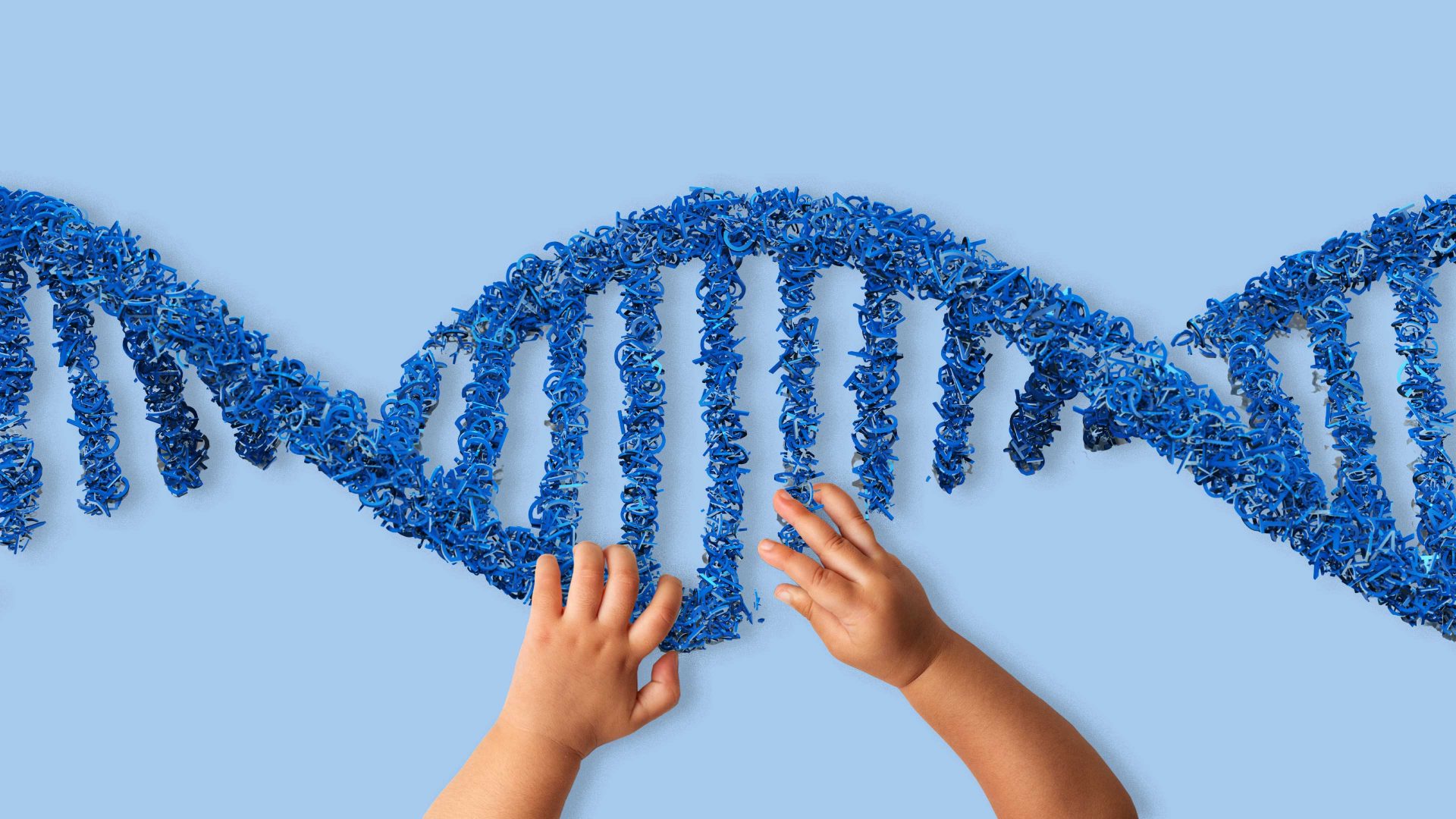The UK government’s plan to introduce genomic sequencing for all newborn babies in England within the next 10 years could best be characterised as bold – if by that we understand it to be expensive, of unproven value, and beset with ethical difficulties. It is possible that such a programme could bring health benefits, but the complexities are far murkier than is readily apparent from the triumphalist announcements.
Health secretary Wes Streeting has said that “genomics presents us with the opportunity to leapfrog disease, so we’re in front of it rather than reacting to it.” It isn’t clear what this means. The makeup of our personal genome can indeed reveal something about our susceptibility to various diseases, but the connection of DNA sequence to risk is in general complicated and of limited predictive value.
And risk is not the same as prevention or cure. Streeting adds that, “With the power of this new technology, patients will be able to receive personalised healthcare to prevent ill health before symptoms begin, reducing the pressure on NHS services and helping people live longer, healthier lives.” Sounds good in principle, but given that so much of the burden of disease and ill health is linked to socioeconomics, this could seem a bit like trying to improve numeracy rates by promising everyone a supercomputer.
Just about every known human trait, including susceptibility to diseases, can be correlated with differences in the composition of our genes. By studying those correlations, it has sometimes been possible to identify specific genes that appear to have a strong impact on particular diseases. For example, it has long been known that certain variants of a single gene can give rise to sickle-cell disease or cystic fibrosis. In such cases, it is already becoming possible to produce treatments and cures using gene-editing technology, as well as from the traditional approach of developing drugs to target the errant gene variant.
Suggested Reading


The mystery of the so-called double-slit experiment
Those, however, are the exceptions. Most single-gene diseases are rare. And because they often run in families, people who carry the risky gene variant often know it – and some now use genetic screening during IVF to avoid passing the variant on to offspring. The NHS and Genomics England are already running a study to sequence the genomes of 100,000 babies (the Newborn Genomes Programme) to diagnose and seek treatments for such rare conditions.
In contrast, the common diseases that place the biggest strain on healthcare resources, such as heart disease, cancers, and diabetes, have very complex genomic risk profiles. Many genes are correlated with the risk of the condition, in ways that are probabilistic, not deterministic, and dependent too on lifestyles and other factors. Knowing that your genomic profile puts you in a high-risk category for, say, high blood pressure or obesity, can be useful in giving you advance opportunity – in principle – to adapt your lifestyle or diet and minimise the risk. On the other hand, conventional medical testing already can and does often identify an actual rather than hypothetical cause for concern: high blood pressure, say.
The effectiveness of neonatal genome sequencing depends on having good information for interpreting the results: at present, minority communities are under-represented in genomic databases. Besides, genetic indicators even for some single-gene diseases do not guarantee that the disease will manifest – and alarmingly, there are no guidelines on the best clinical practice for children who are asymptomatic in such cases.
And how should we handle risks of conditions for which there is no known cure? If you have a genetic susceptibility to early-onset Alzheimer’s, would you want to know that from childhood? Perhaps most importantly of all, genomic screening is pointless without the resources to follow up. A 2023 report from the Nuffield Council on Bioethics on the Newborn Genomes Programme said that “It is clear that in the current climate, NHS staff cannot undertake this additional work in the antenatal or neonatal clinics without compromising their other responsibilities.”
There is undoubtedly plenty of medical benefit still to be tapped from genome sequencing. A study last year, for example, showed that, when used for children with suspected cancer, it led to a small improvement in how the cases were managed (for example in terms of testing). But a blanket neonatal scheme will be very costly and there is no proof that it would make a difference, or indeed that it might not result in over-medicalising of the care of healthy babies. The worry is that this becomes a fetishised technology that we use because we can rather than because we know it can make more of a difference than if the money were directed towards other aspects of healthcare.




